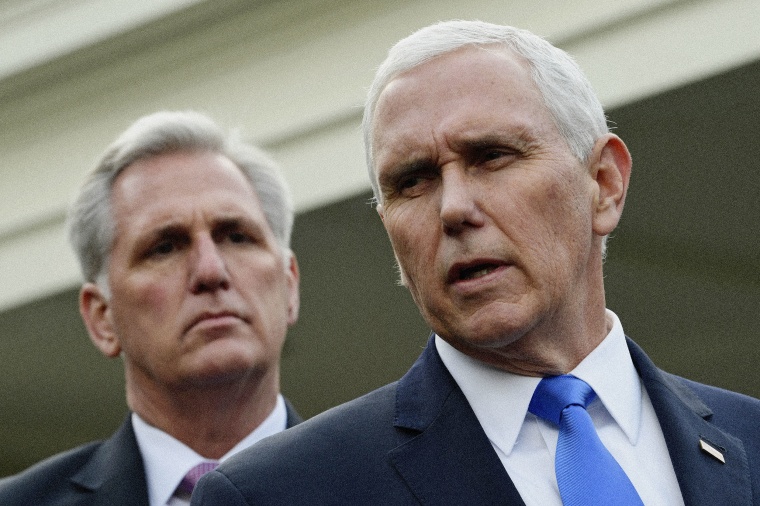It was four days after the attack on the Capitol when House Minority Leader Kevin McCarthy convened a meeting with other House GOP leaders. We know from an audio recording aired on The Rachel Maddow Show how last night precisely what the Californian told his colleagues.
In context, then-House Republican Conference Chair Liz Cheney asked McCarthy whether he believed Donald Trump might resign as a result of his role in inciting the insurrectionist riot. The minority leader said he doubted it, though he was “seriously thinking of having that conversation with him” that evening.
McCarthy added, “Now, this is one personal fear I have. I do not want to get in any conversations about Pence pardoning. Again, the only discussion I would have with [the then-president] is that I think this [impeachment resolution] will pass. And it would be my recommendation that you should resign.”
Part of what made this so notable is that McCarthy and his office explicitly argued yesterday that he did not say what the audio recording clearly showed him saying about encouraging Trump to resign. But let’s not brush past the sentence that preceded this: The minority leader referenced possible conversations with then-Vice President Mike Pence about a pardon?
Politico reported this morning:
McCarthy’s reference to a Pence pardon adds credence to the speculation that Trump might have willingly stepped down early, on the condition that then-Vice President Mike Pence pardon him for any potential criminal acts. That McCarthy thought this was a subject Trump might bring up raises questions about the GOP leader’s belief that criminal acts may have been committed.
This did not escape the attention of the House select committee investigating the Jan. 6 attack.
On the contrary, Democratic Rep. Jamie Raskin, a member of the bipartisan panel, told The Washington Post’s Greg Sargent this morning, “It just seems clear that McCarthy, like other members who lived through these events, understood that Donald Trump had committed grave crimes against the Union.”
The Maryland congressman, who helped lead the prosecution of Trump in his second impeachment trial, added, “McCarthy has a decision to make about whether he wants to tell the Congress and the country the truth about his reaction to the events of Jan. 6.”
Just to go ahead and state the obvious, the investigatory panel would love to have a chat with McCarthy. The committee even extended a formal invitation — not a subpoena, but a request — to the minority leader, urging him to answer questions and shed light on his unique perspective.
As we discussed in January, McCarthy said he would refuse to answer any questions, though it’s worth emphasizing that this was a reversal of sorts. It was last May, for example, when reporters asked the House GOP leader whether he’d be willing to testify about what he knew regarding the Jan. 6 attack. McCarthy responded, “Sure.”
Late last year, the Republican sat down with a local news outlet in his district, which also asked about his willingness to share information with investigators. “I wouldn’t hide from anything,” McCarthy responded.
The minority leader could prove those words true by telling the truth to the Jan. 6 committee now.

